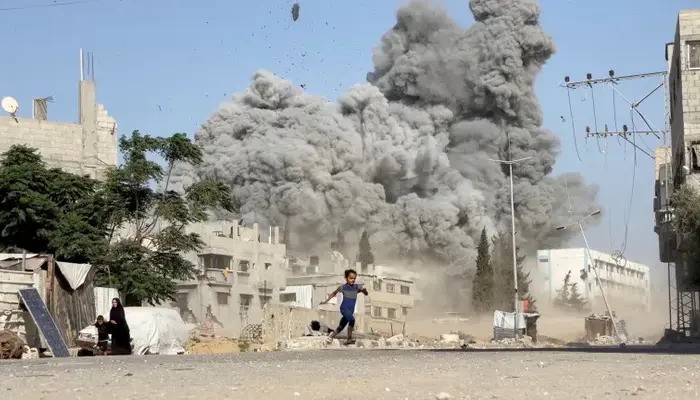Gaza’s humanitarian emergency has escalated into a full-blown malnutrition crisis, with hospitals buckling under the weight of starving patients and a health system on the brink of collapse. As Israel’s months-long blockade continues to restrict food and medical supplies, thousands of Palestinians are suffering the devastating consequences of hunger and war.
Hospitals Struggle to Treat Starving Patients
Gaza’s already overstretched hospitals are now overwhelmed with a sharp increase in malnutrition cases. The Palestinian Health Ministry reported an alarming surge in patients arriving in critical condition — not only physically weak but also showing signs of extreme exhaustion, memory loss, and cognitive decline due to prolonged hunger.
Doctors in Gaza describe heartbreaking scenes of children with distended bellies and elderly patients unable to speak or walk due to lack of food. Health workers are forced to make impossible choices about who receives immediate treatment, as medical resources dwindle and power outages affect hospital operations.
“This is no longer a food shortage — it is a famine under siege,” said one doctor at a major Gaza hospital. “People are collapsing in the streets and dying before they reach us.”
Israel Intensifies Attacks Near Aid Sites
In a deadly escalation, at least 12 Palestinians were killed on Friday when Israeli forces opened fire near a food distribution center in Rafah, southern Gaza. Dozens more were injured, many of them already suffering from hunger and dehydration. The attack occurred close to a humanitarian aid site where hundreds had gathered in hope of receiving limited food supplies.
This incident marks another addition to a staggering toll: since late May, around 900 Palestinians have been killed while waiting for aid at or near Gaza Health Foundation (GHF) distribution points, according to the Palestinian NGO Network. The NGO accused Israel of weaponizing hunger as part of a deliberate “starvation policy” — a charge echoed by multiple humanitarian groups.
Read more: Gold Prices Surge Amid Global Economic Uncertainty
Read more: Stock Market Holds Steady After Rally on Earnings Optimism and Rate Cut Expectations
The United Nations World Food Programme (WFP) reported that one in three Palestinians in Gaza are now going days without eating. “This level of deprivation is unprecedented,” said a WFP spokesperson. “Entire families are surviving on tea and a few scraps of bread.”
Ceasefire Hopes Dwindle as Hunger Spreads
As the humanitarian crisis worsens, the prospects for a ceasefire appear bleak. Abu Obeida, the spokesperson for the military wing of Hamas, claimed that Israel rejected a proposed ceasefire agreement that would have involved the release of all captives held in Gaza. He warned that the group is prepared for a prolonged war if no agreement is reached.
Meanwhile, Israeli airstrikes continue across Gaza. At least 51 Palestinians have been killed in attacks since dawn on Friday, including 14 people who were seeking humanitarian aid. The death toll rises daily, deepening the despair of a population already weakened by months of displacement, fear, and hunger.
Humanitarian organizations continue to urge the international community to intervene. “This is a deliberate strangulation of a civilian population,” said a spokesperson for the Palestinian Red Crescent. “Without immediate food, water, and medicine, thousands more will die — not from bombs, but from starvation.”
In the face of worsening malnutrition and a collapsing health infrastructure, the people of Gaza remain trapped — not only by physical barriers but also by the world’s silence. Unless the blockade is lifted and aid allowed to flow freely, the malnutrition crisis will continue to kill silently, even as the bombs fall.
Read more: Mystery Deepens as Chemical Report Clears Poisoning in Humaira Asghar Death Case
Follow us on Instagram, YouTube, Facebook,, X and TikTok for latest updates
